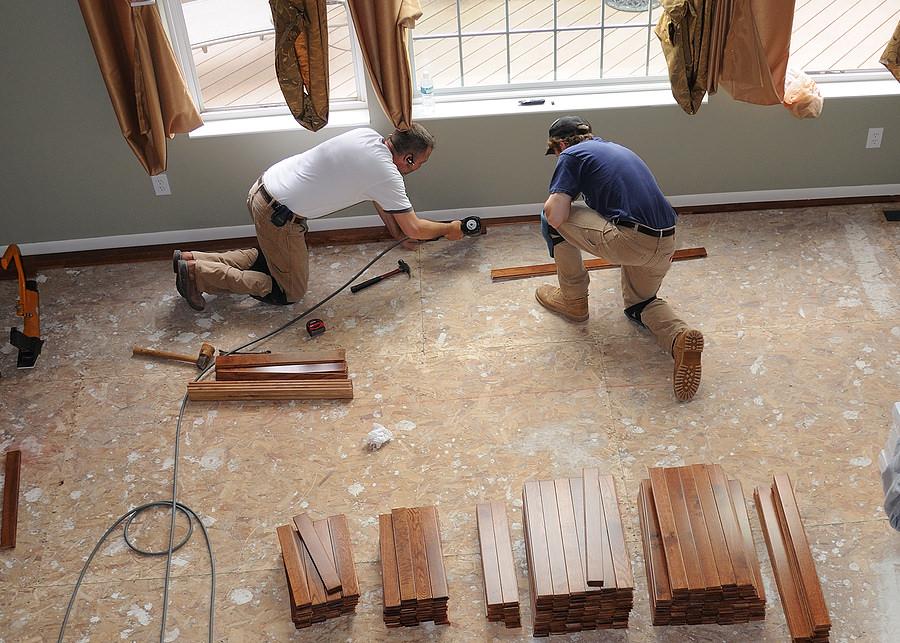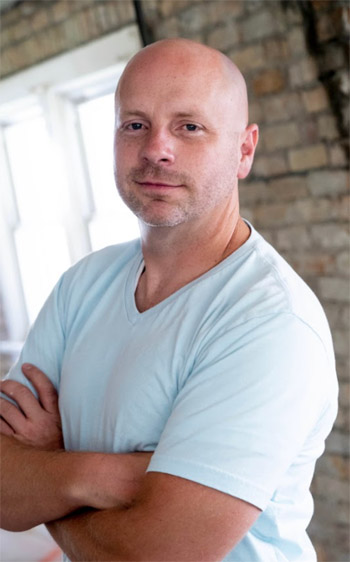
From wholesaling to property management, vacation rentals, house flipping, mortgage lending, commercial real estate to residential, John Maxim has done it all.
He has founded multiple seven-figure businesses including Tree Fort Realty, Rhino Property Management, Savvy House Design and Doorstep Management — all the while using his success to give back. John reached financial independence years ago, but keeps working because he loves what he does.
Curious how to start investing in real estate and building your own portfolio? Enjoy this story of a self-made real estate millionaire.
Johns First Investment Property
“I started my real estate empire at 21 years old. I bought a house in Salt Lake City for under $70,000, and funded the purchase through my first bit of savings.
“Then I came up with the idea to live in the garage, so I could rent out the bedrooms to my friends. Then, I quickly realized I could live under the stairwell, put bunk beds in the garage, and rent out the bedrooms and the garage to nine of my friends.
“This created $1,000 in passive income per month for me, allowing me to save for my next big investment. All big investment empires start with a sacrifice.”
You might know this strategy by the term house hacking. I did something similar with my first home, renting out a bedroom to a housemate, although it didn’t even cover my monthly mortgage payment, much less netted me cash flow.
Funding & Networking
 “For my second deal, I paid 18% interest to the lender. I found them at local real estate investing associations and networking. With the next few properties I used hard money loans to fund them: high-interest short-term loans. In fact, I still use hard money loans, paying 8-12% interest.”
“For my second deal, I paid 18% interest to the lender. I found them at local real estate investing associations and networking. With the next few properties I used hard money loans to fund them: high-interest short-term loans. In fact, I still use hard money loans, paying 8-12% interest.”
That’s typical among investment property loans, although some lenders like Kiavi and LendingOne offer lower interest rates.
Sometimes, even if John uses his own cash, he still pays himself 12%: “You want your money to work for you.” It makes more sense than it appears — it forces you to think about opportunity cost and the investment value of your cash.
“I used to fund all of my deals myself, but now I use investments from various people (instead of a bank) and give everyone a cut.” In other words, John raises money from friends, family members, and acquaintances through private notes.
Related Article Read: Best Ways To Find Pre-Foreclosure Listings.
Related Article Read: What is driving for dollars.
Passive Income Creates Momentum
“I always tell people passive income creates more passive income. Once you have one stream of passive income, you can use it to create another revenue stream and do it again and again and again. Invest your first chunk of passive income into your next investment, and so on.
“I have dabbled with duplexes, home flipping, and many other real estate strategies. However, finding one niche in real estate and getting really, really good is the way to go.
“I am a house flipper. Yes, I invest in duplexes but my bread and butter is home flipping. I found a specialty within the past few years, flipping 120+ year-old homes. Most home flippers won’t touch older homes like this. But, I have found this is why they are less competitive for me.
“Also, these older, custom homes are often better made than the track homes of the 1970s-1980s, where builders cut costs and corners.”
When you buy a rental property or flip a house, you could take the profit and spend it. Or you could reinvest it in more deals, and use it to snowball your income.
The Big Lesson
“A big lesson for me was the first time I lost big money, on a house that I shouldn’t have taken on. I did it because people told me I couldn’t — I believed otherwise. I overextended myself with it.
“I lost $15,000 — at a time when that was ALL I had. I couldn’t go grocery shopping. I could have gone to my lenders and asked for a discount. But, I had more opportunities coming and didn’t want to burn bridges going forward. Losing that $15k and making it other people’s problem would have been a huge mistake, and I shouldered that responsibility myself.
“I had to sell a car. It was very difficult. My lender knew what I was going through, when I called him with another deal, he commented on how I had taken on the burden than trying to put it on the bank.
“What I learned was that I need to be prepared to lose because I am not going to do everything right all the time. Second, if I take care of my lenders and investors, they will take care of me. I now lose money on 1 out of 10 deals, but my lenders have never lost a dime.
As a result, I always have more money than I need.”
(article continues below)
What Is John Doing Now?
“I am 44 and working hard every day, I can retire if I want to.”
John explains that he’s still young and enjoys making the deals. He has flipped over $500 million in homes. Right now, he owns over 100 properties (including rentals, nightly rentals, commercial buildings and flips).
In his spare time, he flips homes for families in need, free of charge. He also hosts bi-annual treasure hunts in Salt Lake City, burying $20k-$30k cash for winners.
The real estate mogul is a humble father of five, failed stand-up comic, hobby filmmaker and backyard beekeeper who has saved over 70 raccoons in the state of Utah. “Most of my investments are in Salt Lake City. This way, I get to tuck my kids into bed at night!”
Final Words of Advice
John didn’t mince words when we asked him about his advice for new real estate investors.
“Find a niche ASAP! Commercial? Home flipping? Duplexes? Restaurants? It’s hard to be an expert at everything, it’s easier to be an expert at one thing.
“You don’t learn until you try, putting yourself out there. Join a meetup group or a mastermind, make friends in the investment space.
This is how we all learn.”
It’s certainly how I learned. And while you’ll make the occasional mistake and maybe lose money, you’ll gain an education that lets you make money in any economy, anywhere in the world.♦
What are your goals and strategy for reaching financial independence? How does real estate fit in your quest for financial independence/early retirement?
Related Article Read: Everything you need to know about due diligence in real estate.
Related Article Read: Should I Transfer the Title on My Rental Property to an LLC?
More Real Estate Investing Reads:
About the Author

G. Brian Davis is a landlord, real estate investor, and co-founder of SparkRental. His mission: to help 5,000 people reach financial independence by replacing their 9-5 jobs with rental income. If you want to be one of them, join Brian, Deni, and guest Scott Hoefler for a free masterclass on how Scott ditched his day job in under five years.



























Hello! I have read that home flipping is your bread and butter. What made you choose it over other real estate strategies?
John likes how flipping homes raises capital for other investments, such as rental properties and stocks. Each of his investment strategies builds on each other.
I like flipping houses too but I’ve made some costly mistakes. Exploring some other real estate investing niches as well.
I’ve made plenty of expensive mistakes in my time as well Edward!
This is a very inspirational – especially for those who like flipping houses!
Glad to hear it Dino!
What a motivational story! I hope we landlords are able to pull off something like this in the future.
Glad to hear you got something out of John’s story Timmy!
if you guys have questions for john, you should hit him up on instagram!
@onthejohn
Nice read! I made a couple of mistakes in house flipping and I wonder if you could help me find a mentor or perhaps courses for house flipping? I like it as much as other type of investment so I would like to keep on improving until I reach Financial Independence. Thank you!
Hi Jeric, reach out to Drew Sygit from Logical Property Management in Michigan. He can help you find fixer-uppers and oversee renovations.